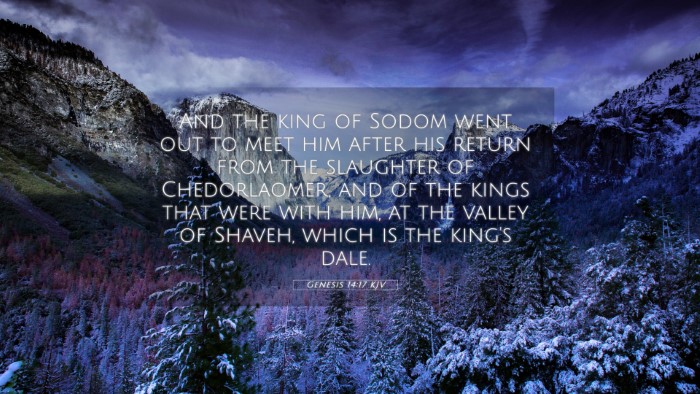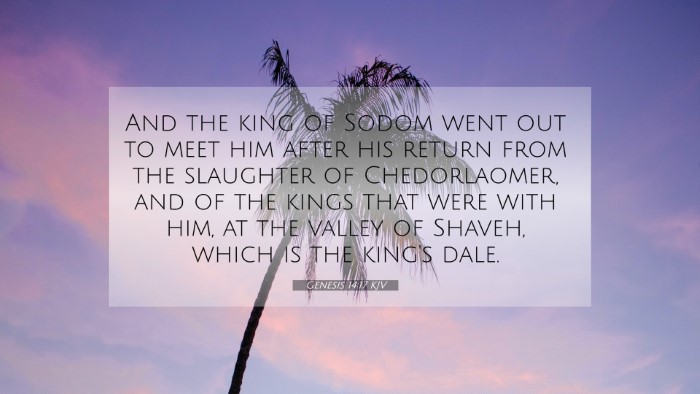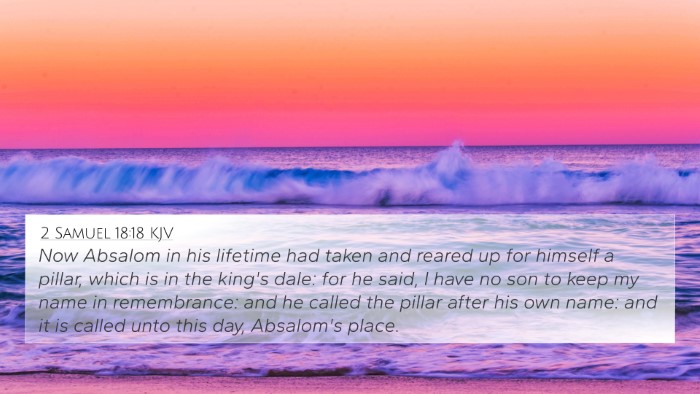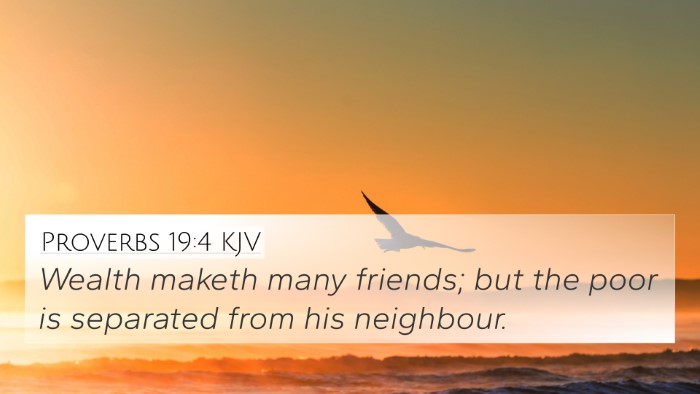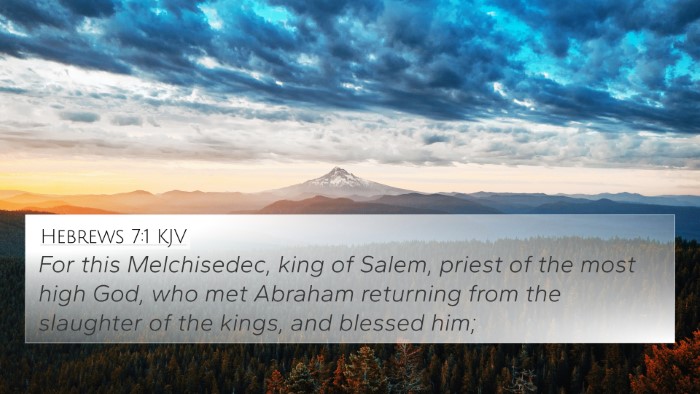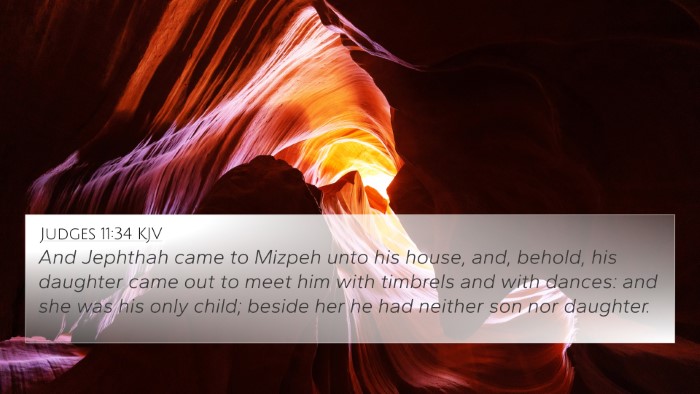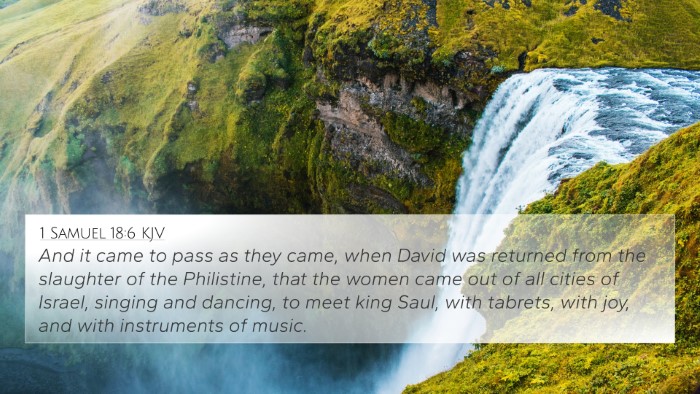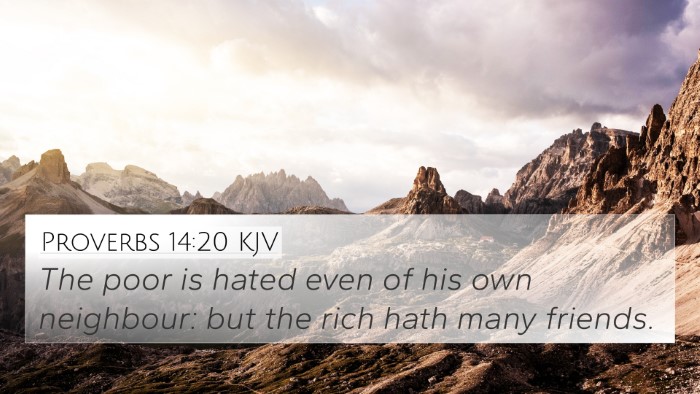Understanding Genesis 14:17
Genesis 14:17: "And the king of Sodom went out to meet him after his return from the slaughter of Chedorlaomer and of the kings that were with him at the valley of Shaveh, which is the king's dale."
Summary of the Verse
This verse describes an encounter between Abram (later Abraham) and the king of Sodom following a military victory over Chedorlaomer and allied kings. The "valley of Shaveh," also known as "the king's dale," serves as a significant location for this meeting, highlighting the importance of Abram's victory and the subsequent political dynamics.
Insights from Public Domain Commentaries
Matthew Henry's Commentary
Henry points out that Abram’s victory over Chedorlaomer represents God's providence and strength, establishing Abram's significance among the neighboring kingdoms. The meeting at the valley of Shaveh signifies both political acknowledgment and respect towards Abram from Sodom’s king.
Albert Barnes' Notes
Barnes emphasizes the context of this verse within the larger narrative, which underscores Abram's role as a warrior and leader. The king’s response to Abram illustrates the political implications of the victory and foreshadows future interactions between Abram and the inhabitants of Canaan.
Adam Clarke's Commentary
Clarke discusses the historical significance of this encounter, noting the geographical importance of the valley and the implications of the major kingdoms involved. This event underlines the prosperity that can arise from divine assistance and righteous actions when one stands firm in the face of adversity.
Bible Verse Cross-References
- Genesis 14:14: Abram's pursuit of Chedorlaomer emphasizes his willingness to rescue Lot, showcasing his leadership and bravery.
- Genesis 14:20: The encounter with Melchizedek, illustrating divine endorsement of Abram’s mission and character.
- Exodus 17:8-13: The battle against Amalek parallels Abram's military endeavors, reflecting God's support in confrontation.
- 1 Samuel 30:1-8: David's pursuit of raiding parties following his loss emphasizes a similar theme of warfare and recovery.
- Hebrews 7:1-10: Melchizedek's priesthood foreshadows Christ, linking the themes of kingship and righteousness in biblical history.
- Genesis 12:1-3: God's promises to Abram set the stage for his later victories and interactions with foreign kings.
- Romans 4:3: The righteousness credited to Abram links to his faith and actions that are honored throughout biblical narrative.
Thematic Connections and Context
This encounter in Genesis 14:17 is a rich intersection of faith, leadership, and divine endorsement. The themes present in this verse resonate through various parts of Scripture, creating a tapestry of inter-biblical dialogue. For instance:
- The concept of divine providence can be cross-referenced with Psalm 23:1, affirming that the Lord guides and supports His followers.
- The political dynamics are reflected in Daniel 2:21, where God appoints kings and removes them, showcasing divine sovereignty.
- God’s protection over His chosen ones resonates throughout Isaiah 54:17, where no weapon formed against them shall prosper.
Tools for Bible Cross-Referencing
In delving deeper into scripture, various resources can enhance understanding:
- Bible Concordance: A useful tool for locating verses based on keywords.
- Bible Cross-Reference Guide: Provides systematic connections between related scriptures.
- Cross-reference Bible Study: Methods that help explore connections within texts for deeper insights.
Conclusion
Genesis 14:17 serves as a foundational narrative that encapsulates the intertwined relationships of faith, kingship, and divine intervention. By utilizing the insights from various biblical commentaries and cross-referencing tools, deeper understandings can be forged, creating a greater narrative of scriptural connections. Engage in comparative Bible verse analysis as you explore these themes, enriching your study and spiritual growth.

